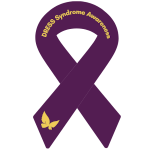National DRESS Syndrome Day Date in the current year: July 16, 2026
 National DRESS Syndrome Day is observed annually on July 16. It was created to raise awareness of a rare reaction to certain medications characterized by a skin rash, fever, swollen lymph nodes and blood abnormalities.
National DRESS Syndrome Day is observed annually on July 16. It was created to raise awareness of a rare reaction to certain medications characterized by a skin rash, fever, swollen lymph nodes and blood abnormalities.The acronym DRESS stands for “drug rash with eosinophilia and systemic symptoms” or “drug reaction with eosinophilia and systemic symptoms”. Alternatively known as drug-induced hypersensitivity syndrome (DHS), DRESS is a potentially life-threatening condition that can be caused by more than 50 medications.
The exact incidence of DRESS is unknown, but it is believed to occur once per every 1,000 to 10,000 drug exposures. The syndrome is most frequently caused by anticonvulsants (antiepileptics) and antibiotics. Other drug groups that are known to have caused DRESS include antidepressants, anti-inflammatory drugs, antifungals, antipsychotics, antivirals (including HIV antiretrovival drugs), high blood pressure medications, immunomodulators, and more.
The first symptoms of DRESS usually appear withing 2–6 weeks after exposure to a new medication. They generally include fever, an itchy rash, enlarged lymph nodes, facial swelling, and a general sense of feeling unwell. Sounds unpleasant but not particularly dangerous, right? Wrong. The real danger posed by DRESS lies in inflammation that may affect the internal organs, most commonly the liver, kidneys, lungs, heart, pancreas, and the nervous system.
Inflammation of the internal organs associated with DRESS is potentially life-threatening; the syndrome has a 10% mortality rate. The most common cause of death is organ failure. Although most DRESS patients who are diagnosed promptly and receive proper treatment recover from the initial episode, some experience long-term complications in the form of autoimmune reactions that may occur several months or even years after the initial DRESS episode.
DRESS can be confused with other severe cutaneous adverse reactions (SCARs), so blood tests are usually required to confirm the diagnosis (DRESS patient usually have specific blood count abnormalities in addition to visible symptoms). The first and most crucial step in treating DRESS is to identify the drug responsible for the adverse reaction and stop taking it. Corticosteroids are usually used to combat inflammation; some patients may need additional supportive medications. Less severe cases of DRESS are treated conservatively with topical glucocorticoids (if necessary) and supportive care.
National DRESS Syndrome Day was launched in 2021 by the DRESS Syndrome Foundation, a nonprofit organization that works to educate the general public about DRESS syndrome and support DRESS patients. You can get involved by learning more about DRESS syndrome and sharing the facts you’ve learned with others, donating to the DRESS Syndrome Foundation or any other organization that supports patients or/and helps fund research, and spreading the word on social media with the hashtags #NationalDRESSSyndromeDay, #DRESSSyndromeDay, #DRESSAware and #DRESSSmarter.
- Category
- Other Observances
- Country
- USA
- Tags
- National DRESS Syndrome Day, observances in the US, awareness days, DRESS syndrome, drug-induced hypersensitivity syndrome